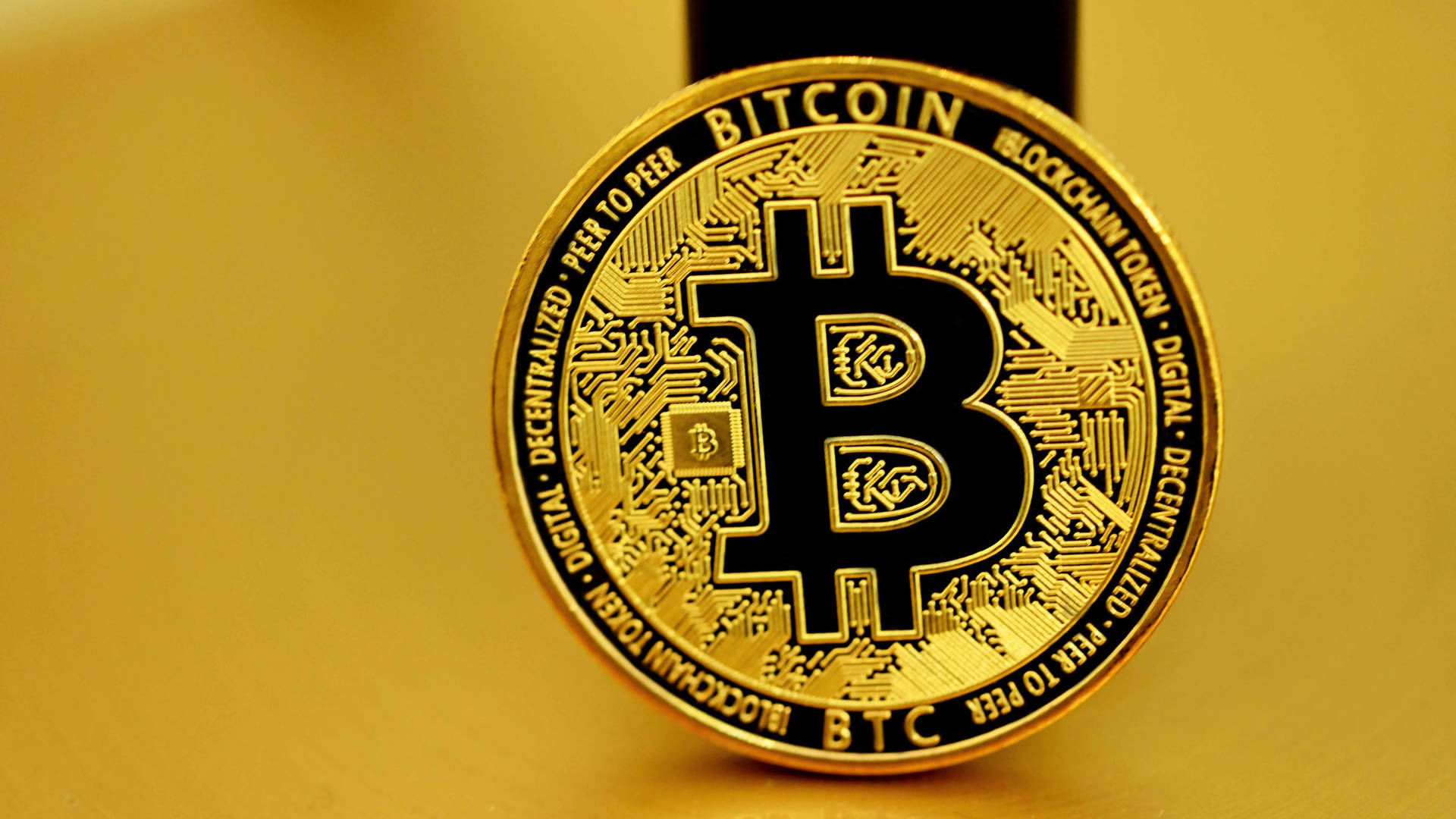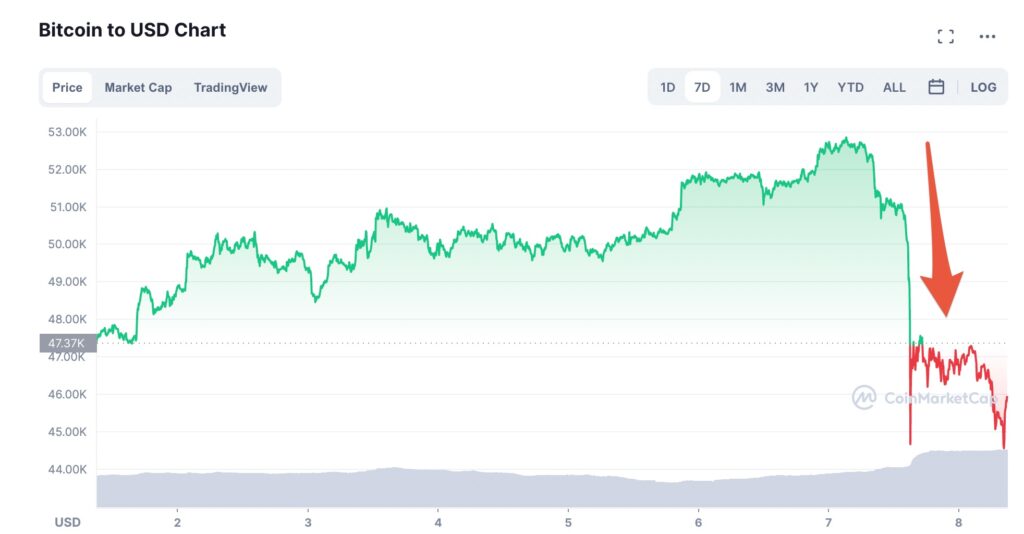
On September 7, El Salvador became the first country to make bitcoin legal tender. The launch of cryptocurrency, however, was eventful, with somewhat saturated servers and a drop in the price of bitcoin.
It’s official: since Tuesday, September 7, bitcoin is an official currency in El Salvador. The event is a great first. While bitcoin is bought and used in many countries, none had so far agreed to make it “legal tender”, which means that the Salvadoran population can use it to pay off a debt.
The financial sphere therefore had its eyes riveted on the price of bitcoin on that day, in order to see how the event would influence the value of the cryptocurrency. Cryptocurrency enthusiasts had called on Reddit to buy bitcoin that day, in order to support and celebrate El Salvador’s initiative. However, the price of bitcoin fell on Tuesday, September 7, from more than 44,000 euros to less than 37,715 euros, according to CoinMarketCap. Since then, it has fluctuated between 38,000 and 39,000 euros.

“Buy the rumor, sell the news”
If the launch of bitcoin in El Salvador did not generate an enthusiastic surge in the price, this can however be explained by a mechanism that is often observed in the markets. In the field of cryptocurrencies as elsewhere, when a major event is expected (the launch of a product for a company for example), many investors tend to buy upstream and resell immediately after the announcement. That’s what we call ” buy the rumor, sell the news “(In English” buy the rumor, sell the news “or sometimes” buy the rumor, sell the facts “).
Salvadoran President Nayib Bukele did not let himself be taken down. ” Buying the dip “, He immediately trumpeted on Twitter (” we buy down », In French), thereby revealing that the Salvadoran state was choosing to take advantage of this trend to buy more bitcoins than expected at lower prices.
It appears the discount is ending ?
Thanks for the dip @IMFNews. We saved a million in printed paper.
El Salvador now holds 550 bitcoin.#BitcoinDay #BTC ??
– Nayib Bukele ?? (@nayibbukele) September 7, 2021
Pay at McDonald’s with bitcoin
An hour and a half later, Nayib Bukele clarified that, following the purchase of the new bitcoins, El Salvador now held 550 (21 million euros, at the time of writing). The launch of bitcoin in El Salvador was also accompanied by some small technical hiccups. As the BBC specifies, the Chivo digital wallet was launched a few hours late during the day on the various platforms (AppStore, PlayStore etc.). And the servers were a bit saturated with requests to register on Chivo.
However, we have also seen the first messages appear on Twitter from users enthusiastic about being able to pay in bitcoin in shops. ” I walked into a McDonald’s in San Salvador to see if I could pay for my breakfast in bitcoin. To be honest, I really thought I would be told no. Against all odds, they printed a ticket with a QR code that took me to a web page with a Lightning receipt (editor’s note: the payment protocol) and I am now enjoying a traditional breakfast! », Rejoiced a journalist from Bitcoin Magazine, posting some photos in support.
Just walked into a McDonald’s in San Salvador to see if I could pay for my breakfast with bitcoin, tbh fully expecting to be told no.
But low and behold, they printed a ticket with QR that took me to a webpage with Lightning invoice, and now I’m enjoying my desayuno traditional! pic.twitter.com/NYCkMNbv7U
– Aaron van Wirdum (@AaronvanW) September 7, 2021
Making bitcoin official is a risky bet
The day of the official launch of bitcoin in El Salvador was of course eminently symbolic. However, it is now that the real fun begins. President Nayib Bukele’s project is a risky bet. It is possible that the use of bitcoin will help the Salvadoran economy by attracting foreign investment and reducing the fees that expatriate citizens pay when they want to send money home (these remittances represent as much as 20% of the GDP).
As we explained to you here, however, making bitcoin legal tender also involves several risks in El Salvador. Cryptocurrency prices are highly volatile. If the country does not take the appropriate regulations, bitcoin could also facilitate illegal activities such as money laundering.
President Nayib Bukele has managed to put this transition in place at record speed (barely three months have passed since the approval of the bitcoin law). He and his government, however, have not sufficiently educated the public about what bitcoin is and how it works. In a survey carried out in July, 45% of Salvadorans indicate that they do not “ know nothing To bitcoin. True, they won’t be required to use it if they don’t want to – the dollar has been legal tender in the country since 2001 and will retain that status. But it is crucial that citizens have the information allowing them to make an informed choice on the subject.


